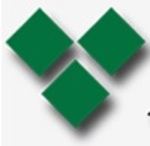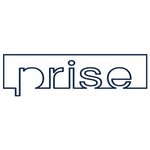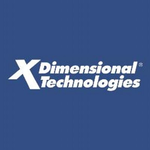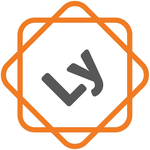Description

OneShield Policy
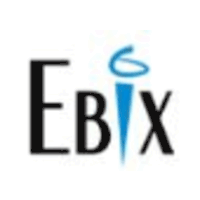
Ebix
Comprehensive Overview: OneShield Policy vs Ebix
OneShield Policy
a) Primary Functions and Target Markets: OneShield Policy is an insurance policy management system designed to cater to the needs of the insurance industry. Its primary functions include policy administration, billing, claims management, rating, product configuration, and document management. This platform is highly configurable and can be customized to fit the needs of different insurers, whether they're working in personal, commercial, or specialty lines.
The target market for OneShield Policy primarily includes large to mid-size insurance carriers and MGAs (Managing General Agents) that require sophisticated and flexible policy administration solutions. It is especially suited to organizations looking for a scalable cloud-based solution that offers modular components to streamline various operations.
b) Market Share and User Base: While specific market share figures are not publicly disclosed, OneShield has established itself as a significant player in the insurance software industry. Its user base consists of various notable insurance entities globally, reflecting strong adoption among larger insurers looking for robust and flexible systems to handle complex insurance products and processes.
Ebix
a) Primary Functions and Target Markets: Ebix is a global supplier of on-demand software and e-commerce services to the insurance, financial, and healthcare industries. The company's insurance software products cover areas such as policy management, claims processing, underwriting, and CRM, among others.
Ebix targets a broad spectrum of the insurance market, including insurance carriers, brokers, underwriting agencies, and third-party administrators. The solutions are designed to support both life and property & casualty (P&C) insurance companies, providing them with tools to enhance efficiency and reduce operational costs.
b) Market Share and User Base: Ebix is a well-established player in the insurance software market, with a diverse portfolio of clients around the world. The company’s broad range of solutions and services has facilitated its penetration into various segments of the insurance industry, from life insurance to P&C, thereby securing a significant market presence. Exact market share figures can vary based on the specific segments and geographic regions they operate within.
Key Differentiating Factors
-
Technology and Integration:
- OneShield Policy: Known for its high configurability and modular approach, OneShield provides technology that allows insurers to tailor the system to meet specific product lines and process requirements. Its architecture supports easy integration with other third-party systems, which is a critical factor for insurers seeking seamlessly interconnected operations.
- Ebix: Offers a comprehensive suite of products that are highly integrated. Ebix is recognized for its ability to offer end-to-end solutions within a unified ecosystem, which can simplify the IT landscape for insurers by reducing the need for multiple vendors.
-
Customization and Configurability:
- OneShield Policy: Offers extensive customization capabilities, allowing insurers to modify and design products without extensive IT intervention. This flexibility is ideal for insurers dealing with complex and varied insurance products.
- Ebix: While Ebix also offers customization, its strength lies in providing pre-integrated solutions that may require less initial setup for standard use cases, appealing to organizations looking for quicker deployment.
-
Target Market Focus:
- OneShield Policy: Predominantly aimed at larger insurers or those requiring a high level of flexibility and customization. The solution’s scalability appeals to organizations expecting substantial growth or variation in their insurance offerings.
- Ebix: Serves a broad range of market segments, including smaller insurance firms and brokerages. Ebix’s products may appeal to organizations looking for a more holistic suite of services that extend beyond policy management, covering various financial interactions and e-commerce functionalities.
In summary, OneShield Policy and Ebix cater to the insurance software market with distinct offerings. While OneShield excels in providing customizable and scalable solutions for potentially larger or more complex organizations, Ebix offers a broader suite of integrated products that can serve a wider range of insurance business needs. Both companies hold significant places in the market, defined by their unique strengths and target client bases.
Contact Info

Year founded :
Not Available
Not Available
Not Available
Not Available
Not Available

Year founded :
1976
Not Available
Not Available
United States
Not Available
Feature Similarity Breakdown: OneShield Policy, Ebix
When comparing OneShield Policy and Ebix, it's important to consider that both companies offer products designed to support the insurance industry, but their specific offerings, strengths, and unique features might differ. Here's a breakdown of their similarities and differences:
a) Core Features in Common
-
Policy Administration:
- Both OneShield Policy and Ebix provide robust policy management solutions. These include policy issuance, amendments, renewals, and cancellations. They also support the entire policy lifecycle and manage different insurance products.
-
Billing and Invoicing:
- Each platform includes billing functionalities that allow insurers to handle premium calculations, invoicing, and collections efficiently.
-
Claims Management:
- Both systems offer claims management capabilities, facilitating claims reporting, adjudication, processing, and settlement.
-
Underwriting:
- The software solutions provide underwriting features that help insurers assess risk, define coverage, and streamline the underwriting process.
-
Integration Capabilities:
- OneShield and Ebix offer integration options with other systems and third-party services, allowing for better data management and workflow optimization.
b) User Interface Comparison
-
Ease of Use:
- OneShield Policy and Ebix both aim to provide user-friendly interfaces, but the perception of ease can depend on user familiarity. Generally, OneShield is known for its highly customizable and intuitive UI, which is designed to accommodate various user levels, from underwriters to policyholders.
-
Design and Navigation:
- OneShield typically offers a more modern and streamlined design focused on efficiency and user experience. Ebix's interface may vary significantly depending on the specific product, as Ebix offers numerous software solutions, possibly resulting in a less uniform experience across different tools.
-
Customization:
- OneShield is often praised for its customization options, allowing users to tailor the interface and features to their specific needs. Ebix also offers customization, but the extent and ease can vary depending on the product being used.
c) Unique Features
-
OneShield Policy:
- Highly Configurable Platform: OneShield is known for its configurability, making it adaptable to complex insurance processes without extensive coding.
- Workflow Automation: It offers advanced workflow automation tools that help streamline operations and reduce manual processes.
- Suite Integration: OneShield provides an integrated suite of products that can seamlessly work together for end-to-end insurance operations.
-
Ebix:
- Diverse Product Range: Ebix may offer a broader range of products beyond policy management that caters to various needs within the insurance, finance, and healthcare sectors.
- Focus on Portals and Exchanges: Ebix has a strong presence in creating platforms that assist in electronic exchange of data and transactions, particularly useful for distribution channels like exchanges and marketplaces.
- Global Reach: With a significant international presence, Ebix might offer more solutions tailored for global markets compared to OneShield.
These insights are based on general industry knowledge and public information about OneShield and Ebix. It's essential to consider specific product lines and recent developments or custom implementations that might influence the offerings and functionalities available from each provider.
Features

Customer Service
Billing and Payments
Policy Administration
Claims Management
Underwriting Management

User-friendly Interface
Comprehensive Reporting
Secure Data Handling
Efficient Workflow Management
Best Fit Use Cases: OneShield Policy, Ebix
OneShield Policy and Ebix are both software platforms that serve the insurance industry, but they cater to different needs and sectors within the industry. Here's a detailed explanation of their best fit use cases for businesses or projects, scenarios for preference, and how they cater to different industry verticals or company sizes:
OneShield Policy
a) For What Types of Businesses or Projects is OneShield Policy the Best Choice?
-
Medium to Large Insurance Companies:
- OneShield Policy is designed to cater to medium to large insurance providers that need robust and scalable policy management solutions. These companies often require complex, customizable workflows and integration capabilities.
-
Property and Casualty (P&C) Insurance:
- It's particularly well-suited for P&C insurers due to its flexibility in handling various lines of business, complex policy administration tasks, and the ability to support dynamic policy lifecycle management.
-
Businesses Requiring Customization:
- Companies that need significant customization to adapt policy management processes to their unique business models will find OneShield Policy advantageous given its robust configurability.
-
Organizations Seeking an End-to-End Solution:
- OneShield provides comprehensive insurance software that covers the full policy lifecycle from quoting, submission, and underwriting to policy issuance, servicing, and renewal.
d) Industry Verticals or Company Sizes Catered By OneShield
- Industry Verticals:
- Primarily targets the P&C insurance market but can be configured for other types such as general insurance and specialty lines.
- Company Sizes:
- Primarily serves medium to large enterprises due to its comprehensive and scalable nature.
Ebix
b) In What Scenarios Would Ebix Be the Preferred Option?
-
Small to Medium Independent Insurance Agencies:
- Ebix suits smaller insurance firms and independent agencies that require cost-effective, easy-to-implement management systems.
-
Life Insurance Sector:
- Ebix has a strong presence in the life insurance sector, offering solutions tailored to the specific needs of life insurance documentation and policy management.
-
Insurance Brokerage Firms:
- Particularly beneficial for brokerage firms needing software that facilitates seamless communication and transaction processing between brokers and their clients.
-
Companies Needing CRM and Front-End Capabilities:
- Ebix’s solutions often come with CRM and sales management functionalities, which are valuable for companies that emphasize relationship management and cross-selling.
d) Industry Verticals or Company Sizes Catered By Ebix
- Industry Verticals:
- While versatile, Ebix has a stronghold in life insurance and benefits administration sectors. It's also utilized in health insurance and annuities.
- Company Sizes:
- Caters well to small to medium-sized firms, including independent agencies and brokerage operations, due to its simpler deployment and cost-effective pricing structures.
Summary
- OneShield Policy is ideal for larger P&C insurers needing a comprehensive, customizable solution across multiple lines of business, focusing on complex policy management tasks.
- Ebix is more suited for smaller agencies and firms, particularly in life and health insurance sectors, that prioritize cost-effectiveness, simplicity, and CRM integration in their operations.
Both products are tailored to specific needs depending on the type of insurance business and the scale of operations, making them valuable tools for different segments of the insurance market.
Pricing

Pricing Not Available

Pricing Not Available
Metrics History
Metrics History
Comparing undefined across companies
Conclusion & Final Verdict: OneShield Policy vs Ebix
To provide a conclusion and final verdict for the insurance software products OneShield Policy and Ebix, it's important to analyze their value proposition, pros and cons, and specific recommendations for users.
a) Overall Value
Best Overall Value: OneShield Policy
- Rationale: OneShield Policy generally offers the best overall value for organizations looking for robust policy administration solutions. Its comprehensive features, customization options, and scalability tend to meet the needs of larger insurers seeking flexibility and growth potential. It is particularly valuable for those who have complex product portfolios and require detailed, customizable solutions.
b) Pros and Cons
OneShield Policy
-
Pros:
- Highly customizable and scalable to accommodate growing business needs.
- Comprehensive suite of features including policy management, billing, and claims.
- Strong integration capabilities with other systems and third-party applications.
- Extensible platform allowing modifications with evolving business requirements.
-
Cons:
- Higher complexity might result in longer implementation times.
- Initial investment can be significant, which might not suit smaller insurers.
- Requires a technical team for customization and ongoing maintenance.
Ebix
-
Pros:
- User-friendly interface with intuitive design, easing training and adoption.
- Strong focus on customer relationship management and communication tools.
- Cost-effective, particularly for small to mid-sized insurance providers.
- Provides a range of modular products that can cater to specific business needs.
-
Cons:
- May lack the depth of customization and scalability required by larger enterprises.
- Could be limited in terms of integration with other large-scale systems.
- Some users may find the feature set less comprehensive compared to competitors for extensive use cases.
c) Recommendations
-
For Large Enterprises: If your business operates at a large scale with complex policy management requirements and anticipates future growth, OneShield Policy is likely the superior choice due to its scalability and comprehensive features. Ensure you have a dedicated technical team to handle its implementation and maintenance.
-
For Small to Mid-Sized Companies: Ebix could be a more suitable and cost-effective option if your organization prioritizes ease of use and quick deployment over extensive customization. It is an efficient solution that provides essential features without excessive complexity or investment.
-
Decision Strategy:
- Assess Needs: Identify specific business needs, scale, and future growth plans.
- Budget Considerations: Weigh initial and ongoing costs against the benefits offered by each system.
- Trial Period: If possible, engage in trial periods or demos to better understand the user experience and specific fit for your operations.
- Integration Requirements: Evaluate existing software systems to ensure seamless integration can be achieved.
In conclusion, the choice between OneShield Policy and Ebix should be guided by the organization's size, complexity of needs, budgetary constraints, and long-term operational goals.
Add to compare
